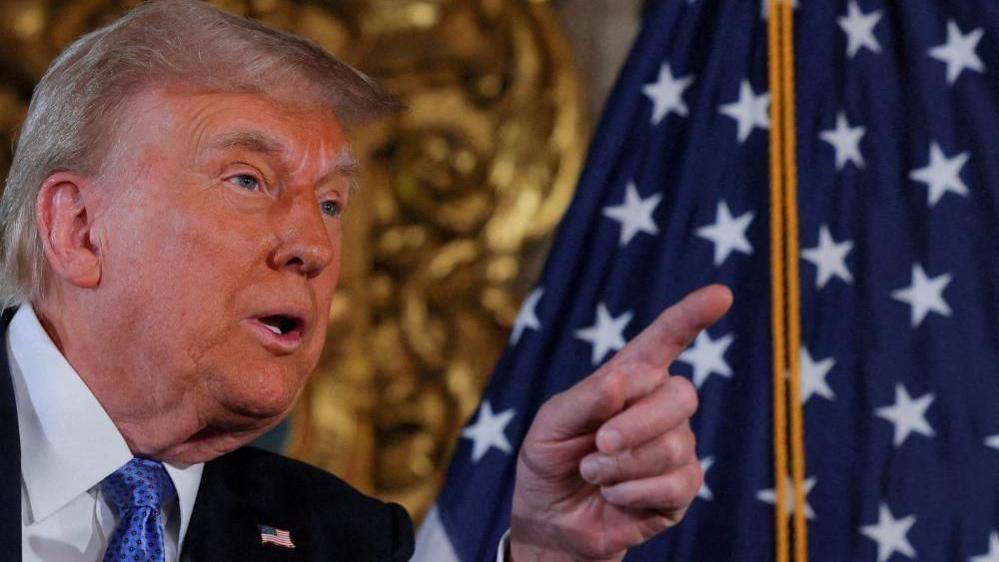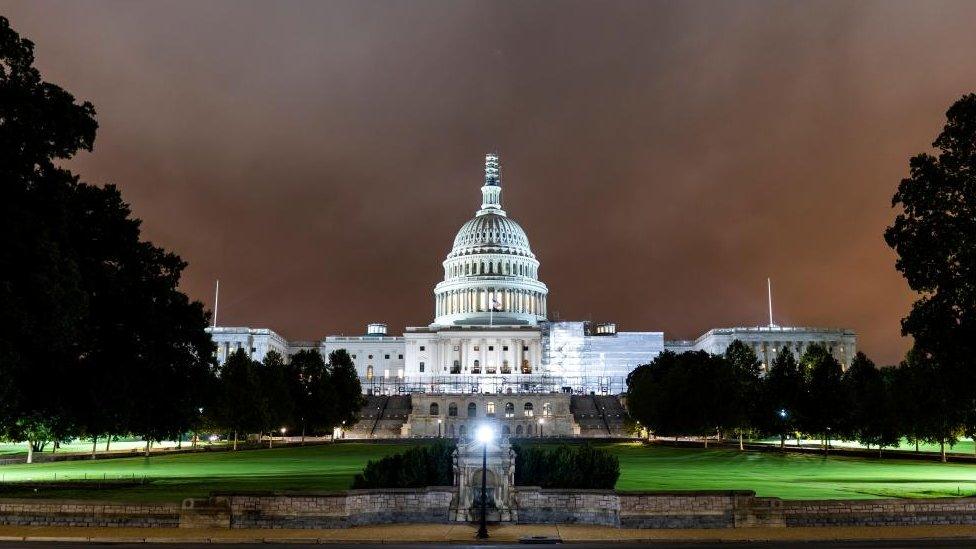Trump's shutdown gamble exposes limits of his power

- Published
The government shutdown showdown of December 2024 was the first big test of president-elect Donald Trump's influence over Republicans in Congress.
It was one he struggled to meet. The chaos of the last few days exposed some of the limits of his power and control of his party as he prepares to re-enter the White House.
One day after Trump derailed a bipartisan government funding bill - with a big assist from the world's richest man, Elon Musk - he issued a new demand, for a stripped-down government funding bill that would also raise the limit on how much new debt the federal government can issue to fund its spending.
It was a big ask for many congressional conservatives who have long demanded that any debt increase at least be accompanied by cuts to what they view as out-of-control government spending. And Democrats, and more than a few Republicans, rejected it.
Trump's demand was also a tacit admission that his legislative agenda, heavy on tax cuts and new military spending, was unlikely to deliver the kind of reduction to America's enormous federal deficit that many on the right have been hoping for.
On Thursday night, this slimmed-down bill, along with a two-year suspension of the debt limit, came up for a vote in the House. Thirty-eight Republicans joined nearly every Democrat in voting it down. This amounted to a stunning rebuke of the president-elect, who had enthusiastically endorsed the legislation and threatened to unseat any Republicans who opposed it.
After that defeat, Republican leaders huddled behind closed doors on Friday in an effort to come up with a new plan.
First, they appeared to back a series of votes on individual components of Thursday night's legislative package – government funding, disaster relief, healthcare fixes and a debt-limit increase. It became increasingly clear, however, that any debt-limit increase would be dead on arrival.
After Republicans and Democrats reopened communications, a new plan was hatched. Bring Thursday night's package back for another vote without the debt-limit provision. While 34 Republican budget hawks still rejected that, all Democrats who voted - wary of a government shutdown less than a week before Christmas – jumped on board.
That ensured the bill had the necessary two-thirds majority to pass. The Senate passed it just after the midnight deadline by 85-11. On Saturday morning, US President Joe Biden signed it into law.
Republicans, in a closed-door meeting earlier on Friday, reportedly agreed to raise the debt limit without Democratic help sometime next year, before the US Treasury hits the current cap.
In doing so, however, they also agreed to accompany that move with trillions in spending cuts – from a pot of "mandatory" spending that includes government-run health insurance, veterans benefits, government pensions and food aid to the poor.
Such cuts would be vehemently opposed by Democrats and could be controversial among the larger public.
That's a fight for another day, however. For now, it appears the US government will continue to function – at least until the new budget deadline is reached in March. At that point, the Republicans will have to juggle funding the federal government while also trying to enact Trump's legislative agenda on immigration, taxes and trade, all with an even narrower House majority.
In the end, this latest drama underscores just how tenuous the Republican majority in the House is – and the limits to Donald Trump's power.
Republicans abhor compromise with the Democrats, but they will be hard-pressed to muster a majority without them. And when Trump says jump, not every Republican will spring into action.
Trump and Musk showed they can kill a budget, but passing one isn't so easy.
Related topics
- Published20 December 2024

